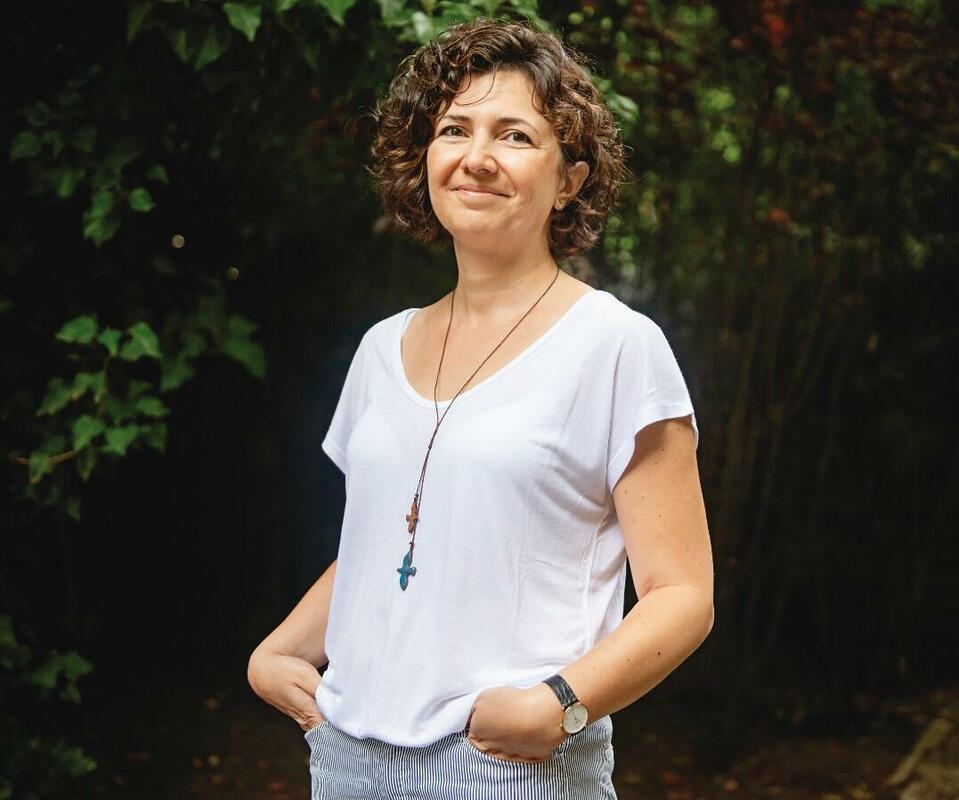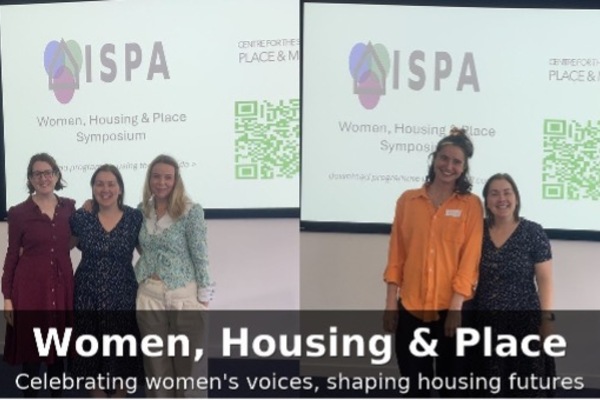“(...)When you get home around eleven o'clock at night, you'll see young people with beer bottles in their hands in front of that street... It's impossible to walk through them alone... They act as if they are going to attack even if you do your hair, wear a mini skirt, and walk during the day." Emine (30, textile worker)
Women's Safety Concerns and House Choice
Emine is one the research interviewees who lives in a working-class neighbourhood. She is single, the head of the household, and lives with her mother. Women face safety issues in many districts of Istanbul, as in many other cities around the world, such as sexual violence, abuse, and attacks from males. Because of these safety concerns, it is difficult for women, particularly single women, to rent a home in any part of the city. When I asked the interviewees what they valued most about their house properties, the majority of them said physical security: what floor it is on, the condition of the doors and windows, the landlord's attitude, not being in a crowded building with many flats, the flat's location on the street, and how easily it can be reached by taxi.
In this research I attempted to grasp the various meanings of being a single woman in relation to gender and space through their life stories. Of course, we cannot speak of only one type of singleness: living alone or with her child/children; living in the same house as her parents; living in a close location to her parents. I conducted in-depth interviews with 28 single women in three different districts of Istanbul, each with a different social, cultural, and economic background. Aside from the previously mentioned safety concerns of single women in accessing and choosing housing, the research also highlighted family ties regarding the necessity of solidarity for care; patriarchal gaze of the neighbourhood; economic constraints, and a lack of state social aid. The results of this research support the argument that women experience and perceive poverty differently than men; their difficulties in accessing housing, choosing a housing location, and dealing with housing problems differ.[1]
Parents’ House Location and Solidarity for Care Work
“…My sister bought a house next door… my other sister also bought the upstairs, we bought this place (ground floor), my aunt lives downstairs. If one day I get married and leave, my mother will not be alone.” Emine (Bağcılar, 30, textile worker)
Some interviewees, such as Emine, prefer to live with or near their parents' houses. Support could be obtained more easily in this manner for either the care of an elderly member of the household or the care of their own children. According to the research findings, divorced single mothers want to be close to their families when choosing a place to live for the care of their children. This necessitates renting a house close to the parents rather than anywhere in the city. As Prof. Saniye Dedeoğlu (2009:45) stated “In the absence of an inclusive social security and assistance system, family and kinship ties replace the security and assistance provided by the welfare state”.
Struggling with Patriarchal Gaze
Single women are confronted with the patriarchial gaze as a moral control in the neighborhood, which questions their ‘honour’ (Lordoğlu 2018). Unlike in many other European/Western countries, living alone as a single woman is not a common nor an acceptable situation in Turkey. Every year, more women want to live alone, particularly in large cities. Instead of directly expressing their wants to their parents, they justify their desire to live alone on various grounds, such as stating that they must move to another city for employment or study. In order to deal with the patriarchal gaze and moral questioning, they generally play a role as a mother, a student, a grieving widow, or a mad woman[2] in the neighbourhood.
At this point, we can assume that the neighborhood's male gaze has the potential to become the moral controller of the neighborhood. In this regard, the eye of the neighborhood is a source of pressure and restriction for single women who do not hold the same values as the neighborhood. So single women struggle not only with economic difficulties, but also this patriarchal male gaze in various ways which controls their lives. They develop a variety of tactics against this patriarchal oppression and mostly they are developing self-restrictions on their lives in many ways. There is a wide range of tactics, from hiding the fact that you are single or divorced to introducing boyfriends who come home as relatives. Building a "balanced distance" from neighbours is the most commonly used tactic in these cases. So they could, to some degree, avoid interference into their lives.
“People know me as a good person. But in the neighborhood, nobody comes to me, and I don't go to anyone. You are my first visitor, aside from my family... Nobody comes from the neighborhood, and I don't invite anybody from the neighborhood. When I'm home, you know they wonder what I do; you know the women in the neighborhood; they still generate gossip when they don’t product anything. That's why I stay away from house sittings as well.” Ayşe (Bağcılar, 38, textile worker)
In addition to being questioned about the honour of being single, women are considered with suspicion if they can pay their rent on time. As a result, single women as tenants are not usually preferred over nuclear families. Even when single women demonstrate a consistent source of income, they appear untrustworthy. In the case of such rejections, they usually go to the house agent with male relatives (such as nephews, uncles, and so on) to persuade the agency to trust them.
Economic Constraints
The biggest fears of low-income women about divorce, in a city where rents levels are considerable, is being forced to be a prostitute as a result of homelessness, and being forced to leave their children to an orphanage due to poverty. Specifically, women who are unemployed without any professional experience and who are raising their children alone, were rightfully scared and felt threatened by the high rent amounts of Istanbul. This has not only been shown in my research but also in the context of different academic studies and various research reports; women typically answer questions related with divorce in a very similar manner: “Where can I go, if I leave this house? Can I find an affordable place?” Housing and sheltering opportunities depend sharply on the economic capabilities of women with the absence of systematic social aid for the single women in Turkey.
Conclusion
Although financial difficulty is at the forefront of housing problems for single women from a variety of socioeconomic backgrounds, this is not the sole problem. According to this and other studies, women and trans women have different housing needs and poverty than men, as well as different constraints.
Patriarchal norms, moral questionings, security issues and financial constraints limit women's ability to live in single, separate homes. Building a separate house is extremely difficult in these social and economic constraints, where unsystematic social aids and family network support are constantly decreasing. During my field research, however, almost all of the single women I interviewed described their single life as an essential source of empowerment and emancipation. Besides, there is potential for the spread of various household types and lifestyle choices. Aside from the heteronormative family structure, different housing and household types are being discussed, particularly in feminist circles. In the midst of a deepening economic crisis, different household structures that allow for the spread of alternative models and the empowerment of women provide hope.
[1] Muñoz S. Precarious city: home-making and eviction in Buenos Aires, Argentina. cultural geographies. 2018;25(3):411-424. [2] When a single woman continually breaks her neighborhood's patriarchal norms, such as arriving late to her house or having male visitors, her neighbours can warn her in a variety of ways. If the women (as some of my research interviewees did) fight with those who threaten them and do not follow these unspoken rules, they may be labelled insane.
[2] When a single woman continually breaks her neighborhood's patriarchal norms, such as arriving late to her house or having male visitors, her neighbours can warn her in a variety of ways. If the women (as some of my research interviewees did) fight with those who threaten them and do not follow these unspoken rules, they may be labelled insane.
References
Dedeoğlu, S. Eşitlik mi Ayrımcılık mı?. Çalışma ve Toplum. 2009.(2). 41-54.
Lordoğlu, C. Istanbul’da Bekar Kadın Olmak. (Being a Single Woman in İstanbul). İstanbul: İletisim Publication. (3rd Edition). 2018.
Muñoz S. Precarious city: home-making and eviction in Buenos Aires, Argentina. Cultural Geographies. 2018;25(3):411-424.

Author
Ceren Lordoğlu is a lecturer in Sociology at the Mimar Sinan Fine Arts University, Turkey. Her work focuses on the intersections of gender, space, and everyday life. She is the author of Being a Single Woman in Istanbul (İletişim Publication, 2018). Her study is centred on a gender perspective, and she is particularly interested in home, urban space, and material culture.
Ceren received a bursary to attend the Housing Studies Association Annual Conference 2023. As part of the bursary, recipients are expected to contribute to the HSA blog, and this blog post is based on the paper presented at the HSA conference.







